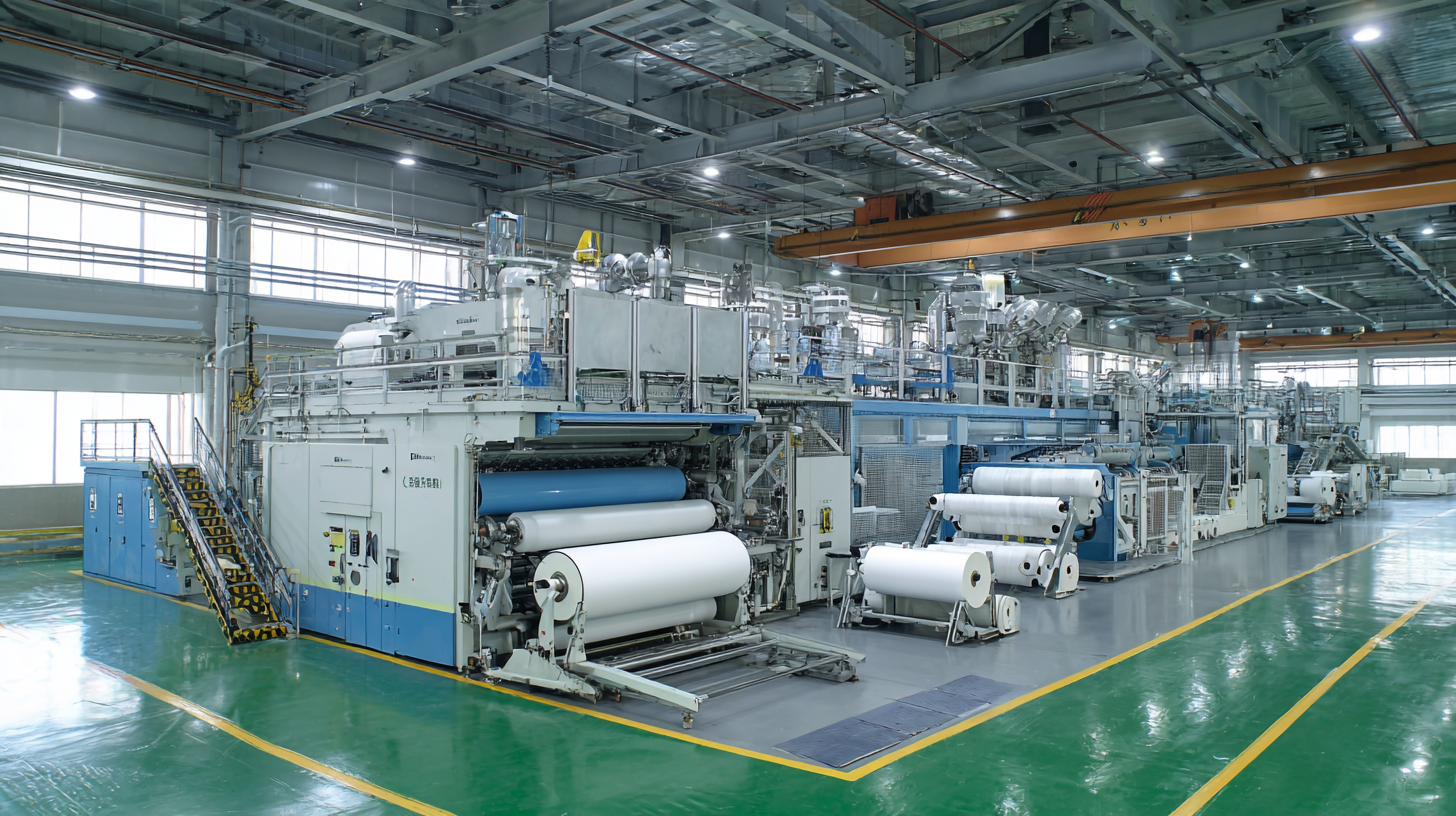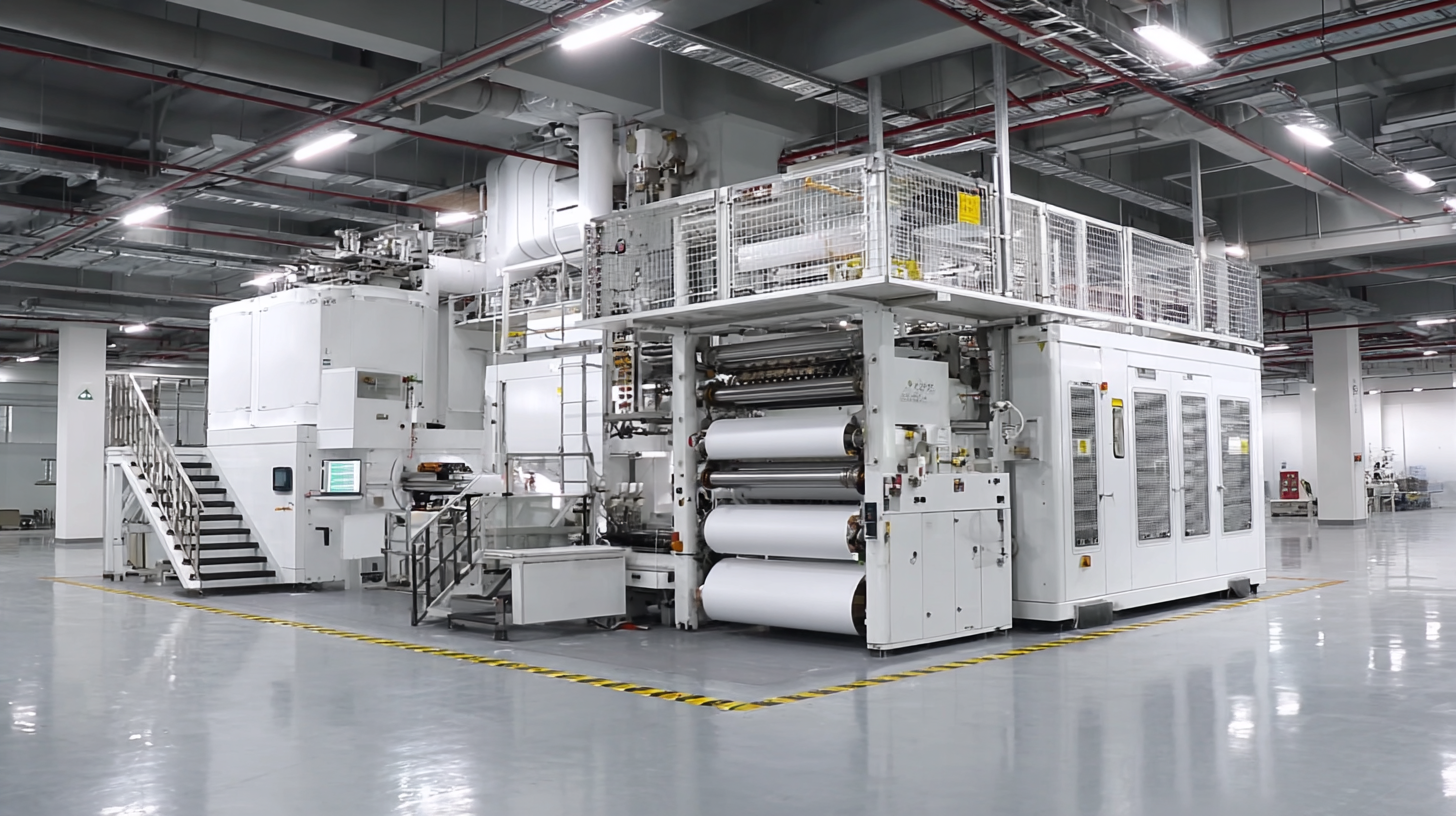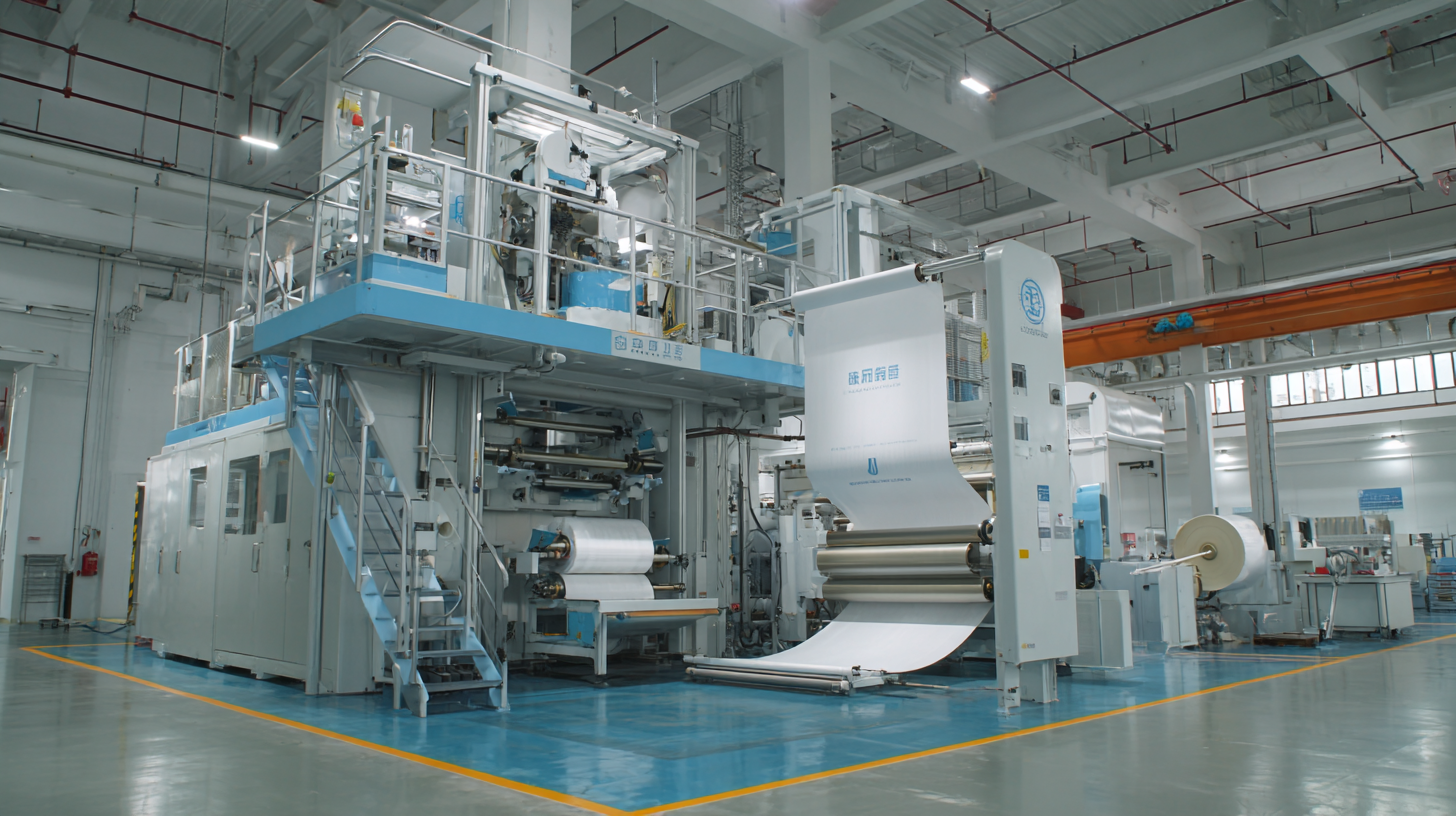Leave Your Message
In the rapidly evolving landscape of the nonwoven fabrics industry, the integration of cutting-edge technology is paramount for maintaining competitive advantage. According to recent market analyses, the global nonwoven fabric market is projected to reach USD 52.5 billion by 2025, driven by advancements in production machinery and the increasing demand for high-performance materials.

One of the critical components of this transformation is the adoption of Automatic Nonwoven Equipment, which offers enhanced efficiency and precision in manufacturing processes. By harnessing automation, manufacturers can significantly reduce operational costs while improving product quality and sustainability.
This blog will explore the significant technological trends expected to shape the nonwoven sector by 2025 and provide a comprehensive guide for businesses looking to invest in top-tier automatic equipment from China, positioning themselves at the forefront of industry innovation.
The significance of after-sales service in the realm of automatic nonwoven equipment cannot be overstated. When investing in advanced machinery from China, businesses are not merely purchasing equipment; they are also buying peace of mind. Reliable after-sales support ensures that clients can maximize the potential of their equipment without facing prolonged downtimes. Establishing a solid relationship with suppliers who offer robust after-sales services means that companies have access to troubleshooting help, maintenance, and even training for their staff, ensuring that they can leverage the technology to its fullest.

Furthermore, effective after-sales service is a key factor in fostering long-term partnerships between manufacturers and clients. By providing timely technical assistance and readily available spare parts, companies can minimize operational disruptions. This support not only enhances the performance of nonwoven equipment but also contributes to product quality and consistency. Therefore, investing in suppliers known for their dedication to after-sales services is essential for businesses looking to thrive in the competitive nonwoven industry.
The efficiency of maintenance for nonwoven production machines is crucial in today's manufacturing landscape. Automatic nonwoven equipment from China is leading the charge in enhancing production capabilities while minimizing costs. One of the standout features of these machines is their designed simplicity, which drastically reduces the downtime typically associated with maintenance. Advanced engineering and smart design ensure that the machines require less frequent servicing and can be easily repaired, preventing long interruptions in the production line.
Moreover, the cost efficiency extends beyond just maintenance. These automatic equipment pieces are often equipped with cutting-edge technology that allows for real-time monitoring of machine performance. This capability not only helps in diagnosing potential issues before they escalate but also optimizes the entire production process by streamlining operations. As a result, companies can maintain high levels of output while keeping operational costs to a minimum. By investing in high-quality automatic nonwoven equipment from China, businesses can transform their production lines and ensure sustainable growth, coupled with remarkable cost savings over time.
In the rapidly evolving nonwoven industry, optimizing equipment efficiency is crucial for minimizing operational costs. According to a recent report by Market Research Future, the global nonwoven fabrics market is projected to reach USD 65 billion by 2025, necessitating the need for advanced automatic equipment that balances high output with low repair costs. Implementing preventive maintenance strategies can greatly reduce unplanned breakdowns, with data suggesting that effective maintenance practices can lower repair costs by up to 30%.
To further decrease these costs, manufacturers can invest in high-quality, automatic nonwoven equipment made in China, known for their reliability and innovative features. A study by Technavio highlights that automation plays a significant role in improving production efficiency while reducing labor costs by approximately 20%. By strategically sourcing machinery that incorporates state-of-the-art technology, companies can minimize downtime and enhance operational longevity, thus ensuring a more sustainable and cost-effective production process in the competitive global market.
| Equipment Type | Initial Cost (USD) | Average Repair Cost (USD) | Repair Frequency (Times/Year) | Downtime (Hours/Year) | Total Yearly Cost (USD) |
|---|---|---|---|---|---|
| Automatic Spunbond Machine | $50,000 | $2,000 | 3 | 24 | $56,000 |
| Automatic Meltblown Machine | $70,000 | $2,500 | 2 | 30 | $78,000 |
| Automatic Needle Punching Machine | $65,000 | $1,800 | 4 | 20 | $69,200 |
| Automatic Coating Machine | $45,000 | $1,500 | 5 | 15 | $50,500 |
In the evolving landscape of nonwoven equipment, the importance of prompt technical support cannot be overstated. Users often face unexpected challenges that could halt production and lead to significant losses. Therefore, having access to timely assistance can mean the difference between a minor setback and a major crisis. Equipment manufacturers, especially those offering advanced automatic nonwoven machines from China, must prioritize establishing robust technical support systems. This not only enhances customer satisfaction but also builds trust in their brand.
Moreover, effective technical support empowers users to maximize the potential of their nonwoven equipment. By resolving issues quickly and efficiently, manufacturers can help clients achieve optimal operational performance, reduce downtime, and maintain high-quality production standards. This level of commitment to customer service is essential for fostering long-term partnerships and promoting the adoption of innovative technologies across the globe. As the demand for nonwoven products continues to grow, the role of supportive technical services will be critical in ensuring the industry’s overall success.
Ensuring the longevity of automatic nonwoven equipment is vital for manufacturers aiming to maximize their production efficiency and reduce operational costs. By prioritizing effective after-sales care, companies can not only tackle potential issues before they escalate but also extend the lifespan of their equipment significantly. This level of support is essential in the fast-paced textile industry, where equipment reliability is directly correlated with overall product quality and market competitiveness.

Investing in comprehensive after-sales care includes regular maintenance checks, swift access to spare parts, and a dedicated customer service team ready to provide technical assistance. This proactive approach fosters a strong relationship between manufacturers and their clients, establishing trust and promoting continuous improvement. By integrating robust after-sales strategies, manufacturers can ensure their equipment remains in peak condition, allowing businesses to focus on innovation and meeting the evolving demands of the global market. Such dedicated services not only mitigate downtime but also enhance the overall value proposition of purchasing automatic nonwoven equipment from leading Chinese manufacturers.
